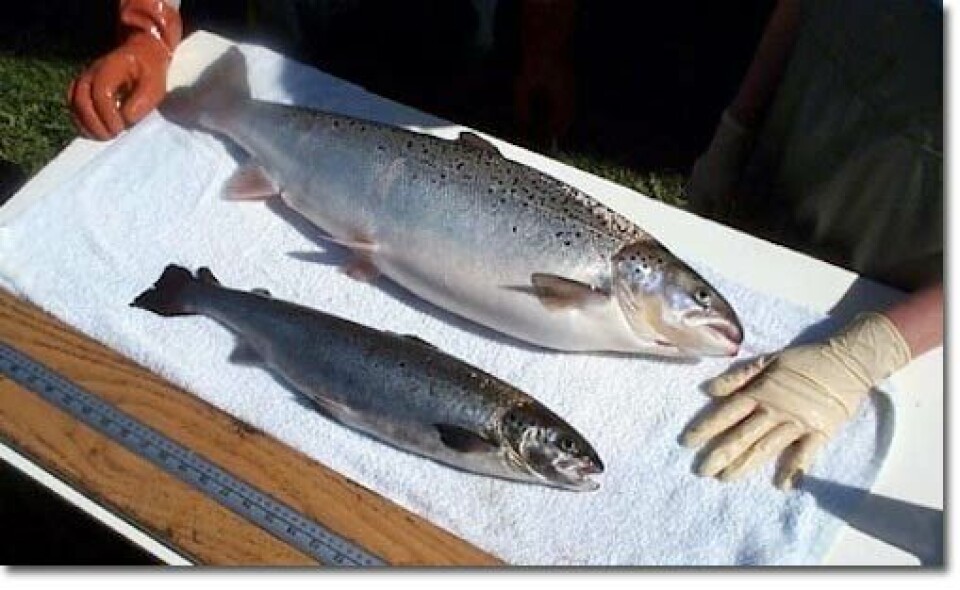
Canadians buy 4.5 tonnes of GM salmon
Biotechnology company AquaBounty sold 4.5 tonnes of its genetically-modified AquAdvantage salmon fillets to customers in Canada in the second quarter of 2017, according to figures released by the firm.
The sale marks the first time that a genetically engineered animal has been sold for food on the open market, something that has taken AquaBounty more than 25 years to achieve.
The RAS-produced fish generated $53,000 in revenue, a modest sum when set against the $2.1m loss for the quarter, but enough to encourage AquaBounty chief executive Ronald Stotish.

He said: “This quarter marked two milestone events for AquaBounty - the purchase of our first commercial farm site for the production of our eco-friendly AquAdvantage salmon in the United States and the very first sales of AquAdvantage salmon.
“The sale and discussions with potential buyers clearly demonstrate that customers want our fish, and we look forward to increasing our production capacity to meet demand.”
Ready in 18 months
The fish, a variety of Atlantic salmon (Salmo salar), is engineered to grow faster than its non-genetically modified counterpart, reaching market size in roughly half the time — about 18 months. AquaBounty sold its first commercial batch at market price: US$5.30 per pound ($11.70 per kilogram), said Stotish, who would not say who bought it.
AquaBounty grew the fish in tanks in Panama, and plans to ramp up production by expanding a site on Canada’s Prince Edward Island, where local authorities gave the go-ahead for construction in June. In the same month, the company also acquired a fish farm in Albany, Indiana, for $14.2 million, and is awaiting permission from US regulators to begin production there.
AquAdvantage salmon have a growth-hormone gene from Chinook salmon (Oncorhynchus tshawytscha), along with genetic regulatory elements from a third species, the ocean pout (Zoarces americanus). The genetic modifications enable the salmon to produce a continuous low level of growth hormone.
'Fake fish'
Canada gave permission for the sale of the fish last year but the US has still not given the nod. The law setting out the US government’s budget for 2017 includes a provision that instructs the US Food and Drink Administration to forbid the sale of transgenic salmon until it has developed a programme to inform consumers that they are buying a genetically engineered product. Alaska senator Lisa, who inserted the provision, has called AquAdvantage salmon “fake fish”.
Whole Foods, Trader Joe's, Aldi, and other grocery stores throughout the United States have announced that they would not offer AquAdvantage.
AquaBounty is a majority-owned subsidiary of genetics firm Intrexon Corporation, which describes itself as “at the leading-edge” of the growing synthetic biology discipline. Its subsidiaries include Trans Ova Genetics, a provider of industry-leading bovine reproductive technologies; Okanagan Specialty Fruits (OSF), an agricultural company behind the non-browning Arctic® apple; and Oxitec, a pioneer of safe, innovative, self-limiting biological control solutions for insects that spread disease and cause crop damage.























































